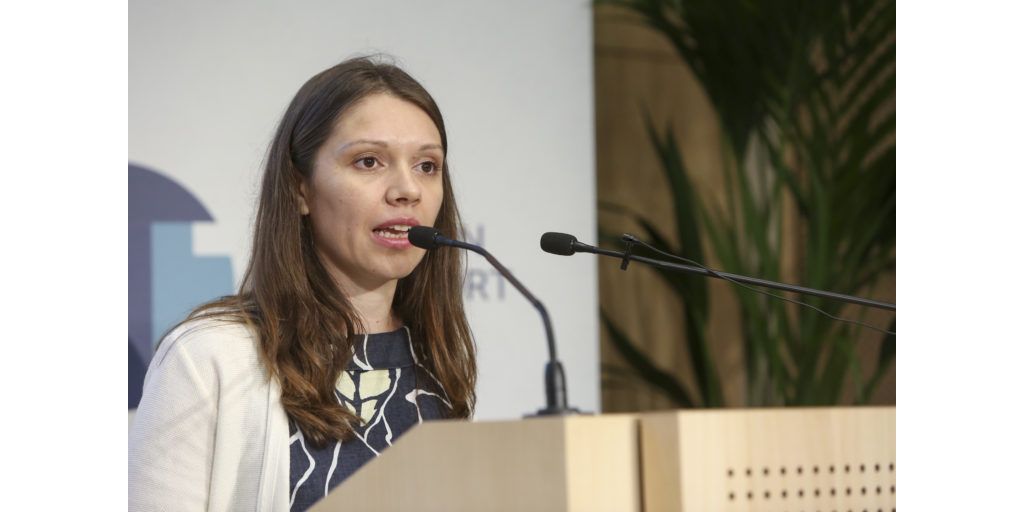Keynote speech by Alina Ujupan, Member of Cabinet Mariya Gabriel, EC – Digital Economy and Society
According to Ms Ujupan, the European data economy is growing at a fast pace: in 2016 it represented 2% of the European GDP and employed around 6 million professionals. With the right legislation environment and investment she expects its size to double by 2020 and employ around 10.5 million people.
She said that the advanced use of data has a positive impact on health and wellbeing, societal challenges, emissions, resource management and driving.
In particular the digitisation of transport and especially connected and automated driving is one of the most important trends that will transform industry in Europe.
However, challenges have to be faced in areas such as liability, cybersecurity, and data use, access and ownership.
Ms Ujupan highlighted several ongoing processes: many Member States have agreed to develop cross-border testing corridors; a recent high-level ministerial dialogue adopted an Action Plan; an industry roundtable has been set-up; and both the European Automotive and Telecom Alliance and the 5G Automotive Alliance are making headway.
She stated that automated mobility features prominently on the agenda of the European Commission as it is keen to support European industry and make sure it keeps its edge by putting Europe in the frontline of deployment of smart mobility and connected and automated mobility technologies. Interlinked initiatives such as GEAR 2030 and the CITS platform will bring together different elements. Ms Ujupan said that the Commission’s role is to provide an enabling framework, not to make technology choices.
Turning her attention to cybersecurity, she said that cyberattacks can have potentially huge consequences on road traffic and human lives, and that vehicle manufacturers need to take a proactive role in detecting and responding to cyberattacks. She believes that the Commission’s recent proposal on voluntary certification schemes will help in this respect. Other key aspects include the management, storage and communication of data, which is essential to build the trust of the consumers who will ultimately buy these vehicles.
In the area of testing cross-border cooperation, a task force is to be established, including the Commission as well as Member States and stakeholders from different environments. Several Member States have agreed to collaborate to launch four crossborder test beds or corridors: Norway, Finland and Sweden; France, Germany and Luxemburg; the Netherlands and Belgium; and Spain and Portugal.
Ms Ujupan said that 50 million euros for 5G testing will be made available this year from the Horizon 2020 ICT program, with more funding available via the Horizon 2020 Transport program. Moreover, with the 5G Action Plan the Commission is committed to promoting the deployment of cellular technology along many transport paths by 2025.
Her final point was that access to end user data is essential for the development of services for the end user, while economic and business models are essential to build the technology infrastructure to support these services: “We therefore need to take the necessary measures to make the European environment attractive for investment and growth in this sector.”
